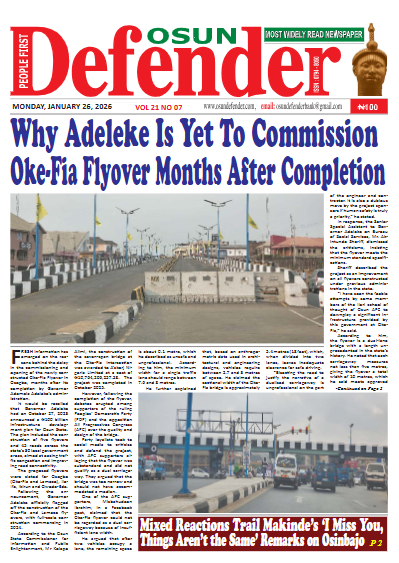Not Too Young To Run? That’s Only Half The Problem By Yemisi Adegoke

In certain schools of political thought, from time to time, the elite classes drop crumbs of hope to pacify the masses. These crumbs are dropped to propagate the belief that a shift is underway that will eventually lead to real political change. The passing of the Not Too Young to Run Bill, is one of those crumbs.
Passed by the Senate last month, the Bill will lower the age of qualification for political aspirants running for presidency, governorship and other political offices. For the office of the Presidency, the age of qualification has been reduced from 40 to 30, Governorship from 35 to 30, Senate from 35 to 30, House of Representatives from 30 to 25 and State House of Assembly from 30 to 25. The Bill will also allow for independent candidates to run for office, sidestepping the need for political parties.
Though the Bill still has some hoops to go through before taking effect, the move by the Senate has been lauded by many as a sign of change, even a positive ‘call to arms’ for the youth, showing that the upper echelons seek to promote equality and level the playing field by encouraging young people to take a more active role in society.
Following in the footsteps of Nigeria’s example, the UN’s Envoy on Youth has partnered with other agencies in a bid to take the Not Too Young To Run movement worldwide. And in theory it makes sense. According to the UN, there are more young people in the world now, than ever before, and approximately 1.8 billion people between the ages of 10 and 24 . In Nigeria, over 60% of the population is under the age of 25. The median age of the country is 18, placing it in the top 20 youngest countries in the world. If population estimates are to be believed, this is a trend that is likely to continue.
But these numbers aren’t reflected in the country’s politics, with Nigeria’s leadership much older than the population. The current president is 74, the vice president is 60 and the senate president is 54. Of the 105 listed Senators on the NASS website, none are in their 30s, the youngest is 43. After a reportedly strong youth turnout in the 2015 election, it would seem obvious that the passing of this Bill, would only strengthen the youth, but will it?
Youth participation in politics on every level is important and should be encouraged, but just like old age is not necessarily an indicator of wisdom, youth alone is not an indicator of the potential for good governance. There is a need for the country’s leadership to reflect its populace, but just as an older politician can be out of touch, corrupt and inept, so can a young one. Nevertheless, anything that will increase the impact of the youth in politics is surely worthwhile, unfortunately, the bill in and of itself will likely do very little to change the current order and politics will still remain very much in the grip of the elite.
A 2015 research paper into the cost of politics by Adebowale Olorunmola shows the exorbitant costs that come with wanting to serve the nation. To run for office, the current president paid a whopping N27.5 million (N2.5 million for expression of interest and N20 million for a nomination fee) the opposition candidate would have paid N22 million. In a country where the minimum wage is N18,000 a month and 70% of the population live below the poverty line, it’s difficult to see how the office of the president is a realistic ambition for the average citizen, talk less of a young person.
Governorship fees are just as outrageous, totalling N5,500, 500 for the APC and N11,000,000 for the opposition. The “cheapest” option is a run at the House of Representatives which under the APC costs N2, 200,000 and under the opposition N2,400,000. Calls to increase the minimum wage have fallen on deaf ears and the youth unemployment rate is at an abysmal high, so how can we honestly suggest that the playing field has shifted even remotely?
High fees aside, we cannot ignore the grip of corruption and godfatherism on virtually every level of Nigeria’s politics. “Godfathers are mostly instrumental to the emergence of virtually every successful candidate from whichever state they control,” reads Olorunmola’s report. “The godfathers are typically above the law and able to mobilize support, money and violence for candidates.”
With such a firm grip on power that shows no sign of diminishing, how then does lowering the voting age factor into making politics more fair, or political office any easier to attain? It doesn’t.
If youth participation in politics was really important, then as well as reducing the age of qualification, why aren’t fees being drastically reduced to represent the wage structure of the country? Why aren’t there more avenues for young people to learn what good governance entails through internships and fellowships?
Reducing the age qualification without tackling any of these other major barriers to office is just another crumb from the elite to help uphold the belief that change is afoot, when it’s really just another smokescreen.









